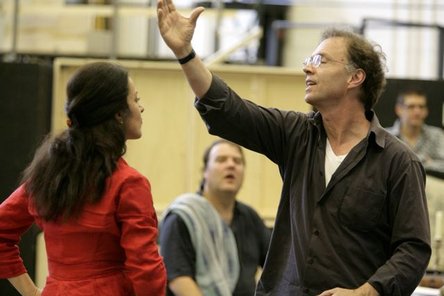Last week I got a copy of the Oxford American Writer’s Thesaurus, and I’ve been having an entertaining time leafing through it. The allure of the book, even if you already have a good thesaurus, comes from the contributing notes by David Foster Wallace, Zadie Smith, Bryan Garner, Francine Prose and others.
These “word notes” are scattered throughout the text and marked by the contributors’ initials. They’re a mixed bag; some are useful and interesting, while others seem overly cute or casual, and I wish this latter group had been juried out or made to O.E.D.-up. After a while I found myself gravitating to certain contributors’ initials and skipping others as reliably irritating. (In that way it’s like scanning the table of contents of a new New Yorker to choose which articles you’ll read.)
But there are amusements and entertainments. Here is Michael Dirda’s note on “limn”:
This is the phoniest word in the critic’s vocabulary, aside from luminous to describe a writer’s prose (and usually rather gushy prose at that). People are unsure of limn‘s pronunciation, uncertain of its actual meaning, and generally pretentious when they use it. Most of the time journalists resort to limn because they want something fancier than describe. Yet while describe slips smoothly by without calling much attention to itself, limn jumps off the page to strut about and show off. It’s one of those words that want to be urbane and debonair but are somehow really ugly, pushy, and nouveau riche. But maybe I’m going out on a limb by saying that. So let’s just call limn fundamentally, almost viscerally, rebarbative.
I don’t agree with parts of it — “limn” is a great word for getting at a particular thing that “describe” doesn’t — but it’s always bracing to come across a good rant in one’s reference materials. I hope journalists listen.
RELATED:
For a contrary take on “limn” and a defense of one notable critic’s use of it, see here.

 When Jonathan directed Angela Gheorghiu in Tosca at London’s Royal Opera House in 1996, he gave an
When Jonathan directed Angela Gheorghiu in Tosca at London’s Royal Opera House in 1996, he gave an